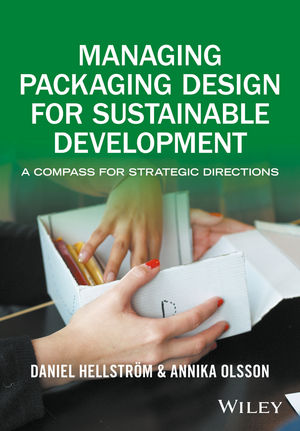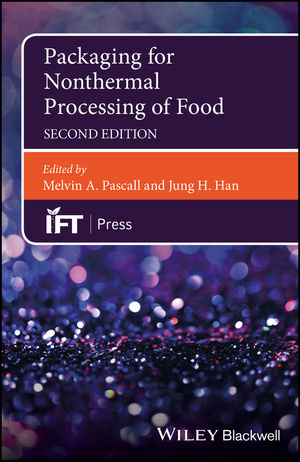Fox Packaging Achieves PFAS-Free Status for All Flexible Packaging Options

Fox Packaging LDPE stand-up pouch bag on conversion line. (Courtesy of Fox Packaging)
Fox Packaging, a leading innovator in the packaging industry, proudly announces the successful elimination of Per- and Polyfluoroalkyl Substances (PFAS) from all its flexible packaging options. This milestone reinforces Fox Packaging's commitment to sustainability, environmental responsibility, and their partnership with their customers.
The use of PFAS in flexible food packaging has become a topic of concern, particularly in the context of fresh produce.
As of this year, several U.S. states have enacted regulations addressing the intentional use of PFAS in flexible food packaging. These regulations aim to restrict the sale, distribution, or manufacture of food packaging containing PFAS and have gone into effect as of 2022 and are now being rolled out into 2024:
- Maine (LD 1433) implemented a prohibition on the sale of food packaging containing PFAS, effective January 1, 2022, with a two-year notice requirement for any determined "safer alternative."
- New York (S 8817) banned the distribution, sale, or offering of sale of food packaging with intentionally added PFAS substances, effective December 31, 2022.
- Vermont (S 20) has prohibited the manufacture, sale, or distribution of PFAS-containing food packaging since July 1, 2023, with a two-year notice for potential alternative implementation.
- Connecticut (SB 837) restricted the inclusion of PFAS in food packaging, effective December 31, 2023.
- Minnesota (SF 20) and Rhode Island (SB 2044) both enacted prohibitions on PFAS inclusion in food packaging, effective January 1, 2024, with Rhode Island specifically noting no exemption for processing aids.
- California (SB 343) enforced a ban on the distribution, sale, or offering of sale of food packaging containing PFAS at or above 100 parts per million, effective January 1, 2023.
This collective approach demonstrates a growing commitment to addressing PFAS concerns in food packaging, aligning with Fox Packaging's dedication to sustainability and responsible practices in the industry.
Iliana Csanyi, Materials Engineer Specialist at Fox Packaging, emphasized the significance of this achievement, stating, "PFAS are harmful chemicals that can contaminate the environment and affect human health. By eliminating them from our products and processes, we have shown our commitment to sustainability and social responsibility."
Supply chain relationships played a crucial role in this transformative process. Lucas Fox, Director of Operations at Fox Packaging, further commented on the importance of collaboration, saying, "Supply chain relationships were vital to the success of our PFAS-free process. We could not have achieved this without the collaboration and support of our materials suppliers, who were very responsive and proactive in meeting our requirements."
In light of the recent developments in regulations, Csanyi highlighted, "In January 2024, the Environmental Protection Agency (EPA) finalized a significant new use rule that strengthens the regulation of PFAS by preventing anyone from resuming manufacture or processing of inactive PFAS without EPA review of the significant new use. Inactive PFAS are PFAS chemical substances that have not been manufactured or processed for many years."
It's imperative to recognize that these regulations do not signify a complete ban on the use of PFAS. Instead, they aim to address the intentional addition of PFAS in food packaging materials. Processing aids, such as fluorinated polypropylene (PPA), play a unique and highly beneficial role in manufacturing films used for packaging, including food packaging. Alternative chemicals do not currently exist in sufficient quantity and qualities necessary to replace fluorinated PPA.
Aaron Fox, Vice President of Fox Packaging, said, "Grocery chains are removing PFAS from food packaging due to concerns about drinking water contamination, health risks, government regulations, and pressure from NGOs and consumers. Retailers are committed to safer products and a healthier environment. Packaging manufacturers are actively supporting these efforts, and it's crucial to monitor progress and ensure these commitments are fully carried out."
Aaron continues: “Material selection requires a careful balance between compliance with state laws and maintaining the functionality and performance of our flexible packaging. Evaluating alternatives for specific properties, such as barrier properties or heat resistance, becomes a meticulous task. Exploring alternative processing aids and adjusting existing processes to align with regulations are integral aspects of this collaborative effort.”
For over 60 years, Fox Packaging has been a leader in designing innovative flexible packaging solutions tailored for fresh produce.
“Our diverse portfolio, including the signature Fox Fresh Mesh® Combo bag for a range of products including citrus and potatoes, and the Fox Poly bag apples and peppers, as well as our Fox Fresh Mesh Wicketed bags for onion and sweet potatoes are all built to ensure quality preservation, shelf-life extension and freshness,” Aaron Fox notes. “We're proud to announce that all our flexible packaging options are now PFAS-free, reinforcing our commitment to sustainability.”
Looking for a reprint of this article?
From high-res PDFs to custom plaques, order your copy today!







